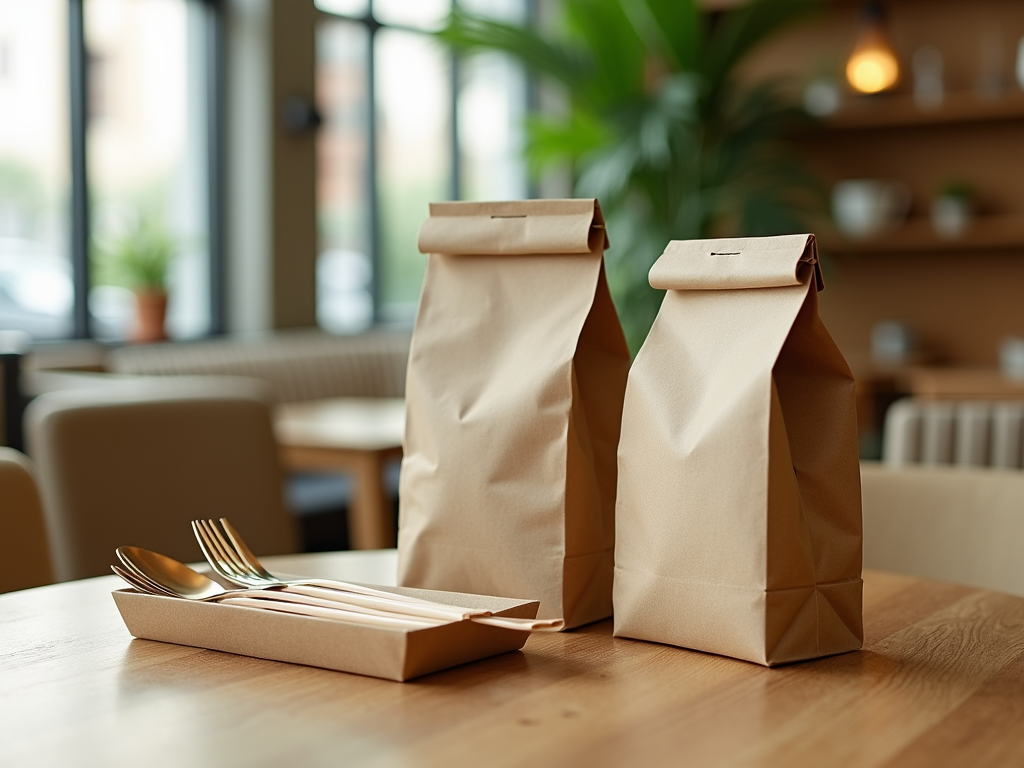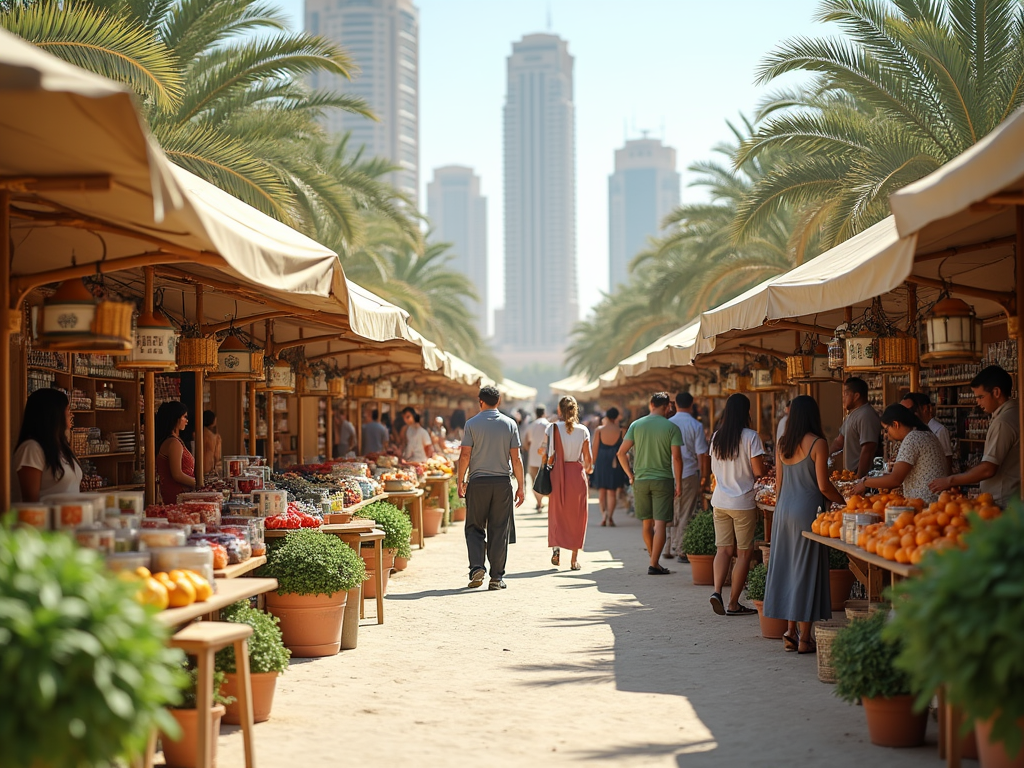The biodegradable product market in Dubai holds significant promise as the city seeks innovative solutions to combat environmental challenges. With increasing awareness regarding plastic pollution and its impact on ecosystems, the demand for eco-friendly alternatives is surging. As Dubai positions itself as a global hub for sustainability, businesses are poised to tap into this burgeoning market. This article will explore the various facets of Dubai’s biodegradable product industry, shedding light on market potential, consumer trends, and governmental support.
Market Overview: A Growing Demand for Eco-Friendly Solutions

The rise of awareness surrounding ecological issues has catalyzed the growth of the biodegradable product market in Dubai. Not only is the government encouraging businesses to transition towards sustainable practices, but consumers are also gravitating towards eco-friendly products. Notable factors contributing to this demand include:
- Government Policies: The UAE has implemented various regulations aimed at reducing plastic waste, paving the way for biodegradable alternatives.
- Consumer Awareness: Increased education on environmental issues has made consumers more discerning about the products they use.
- Corporate Responsibility: Brands are recognizing the importance of sustainable practices to maintain their market relevance.
- Availability of Alternatives: The rise in the production of biodegradable materials has made them more accessible and affordable.
- International Trends: Global movements towards sustainability are influencing consumer behaviors and expectations in Dubai.
Sectors Driving Biodegradable Product Adoption

Several sectors in Dubai are increasingly adopting biodegradable products as a part of their sustainability initiatives. These industries encompass a range of applications where eco-friendly alternatives can replace traditional plastics. The prime sectors include:
- Food and Beverage: Restaurants and cafes are moving towards biodegradable utensils, plates, and packaging to reduce plastic waste.
- Retail: Many retailers are replacing plastic bags with biodegradable options, enhancing their brand image and appealing to conscious consumers.
- Hospitality: Hotels are integrating biodegradable products in their operations, from packaging to toiletries, to promote sustainable tourism.
- Healthcare: The medical industry is exploring biodegradable materials for medical devices and packaging, aiming to minimize environmental impact.
Challenges Facing the Biodegradable Market
Despite the promising potential of Dubai’s biodegradable product market, several challenges must be addressed for sustained growth. Overcoming these hurdles will require collaboration among businesses, consumers, and regulatory bodies. The challenges include:
- Aware Consumer Market: Although awareness is growing, there’s still a significant portion of the consumer base that is uneducated about biodegradable products and their benefits.
- Higher Costs: Biodegradable products often come with a higher price tag compared to conventional options, which could deter some consumers.
- Limited Infrastructure: The recycling and composting systems necessary for effective biodegradable waste management still require improvement in Dubai.
- Mislabeling and Greenwashing: Consumers must be cautious of products falsely marketed as biodegradable, which can undermine trust in the market.
- Need for Innovation: The industry requires continuous R&D to create more effective, cost-efficient biodegradable options that meet consumer needs.
Looking forward, the biodegradable product market in Dubai is filled with opportunities for growth driven by innovation, consumer trends, and government initiatives. Organizations that prioritize sustainability are likely to benefit the most. Key areas for investment and development include:
- Innovative Materials: Research into new biodegradable materials to replace traditional plastics can open up numerous product lines.
- Collaboration: Partnerships between businesses, government, and environmental organizations can facilitate knowledge-sharing and technological advancements.
- Awareness Campaigns: Educational campaigns targeting consumers can drive demand and inform them of the benefits of biodegradable products.
- Regulatory Support: Continued government backing in the form of subsidies or incentives for companies adopting biodegradable solutions.
- Export Potential: As Dubai strengthens its position in the biodegradable sector, the prospect of exporting innovative products to other markets can provide additional growth avenues.
Conclusion
Dubai’s biodegradable product market is ripe with potential, driven by increasing consumer demand, supportive government policies, and the global push for sustainable solutions. While challenges exist, the opportunities for innovation and growth far outweigh the hurdles. Stakeholders in various sectors have the chance to embrace eco-friendly practices that not only enhance their market value but also contribute positively to the environment. As Dubai continues to evolve into a sustainability leader, the biodegradable market is set to play a significant role in shaping the future of consumption in the region.
Frequently Asked Questions
1. What types of biodegradable products are popular in Dubai?
Popular biodegradable products in Dubai include compostable bags, tableware, straws, and packaging solutions used in the retail and food service sectors.
2. How is the Dubai government supporting biodegradable products?
The government of Dubai supports biodegradable products through the implementation of regulations that encourage sustainable practices, as well as providing funding and resources for businesses to transition to eco-friendly options.
3. Are biodegradable products more expensive than traditional plastics?
Yes, biodegradable products typically come at a higher price point compared to traditional plastic options. However, consumers are increasingly recognizing their environmental benefits and are willing to invest in them.
4. What are the environmental benefits of using biodegradable products?
Biodegradable products reduce plastic pollution, contribute to healthier ecosystems, and can help minimize landfill waste since they break down naturally over time.
5. How can businesses promote the use of biodegradable products?
Businesses can promote biodegradable products by educating consumers about their benefits, incorporating them into their operations, and highlighting them in marketing campaigns to attract eco-conscious customers.
